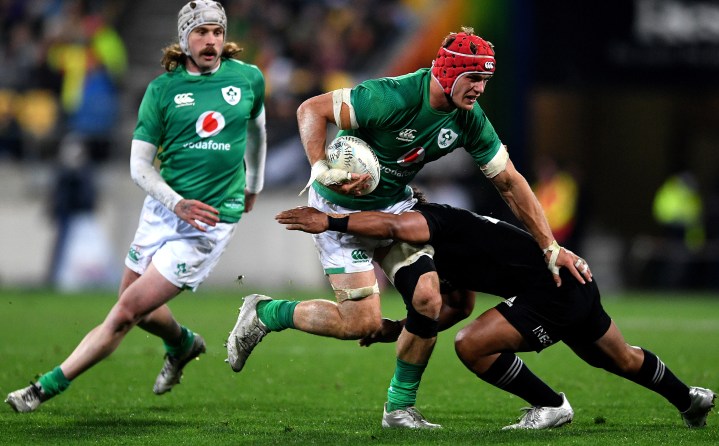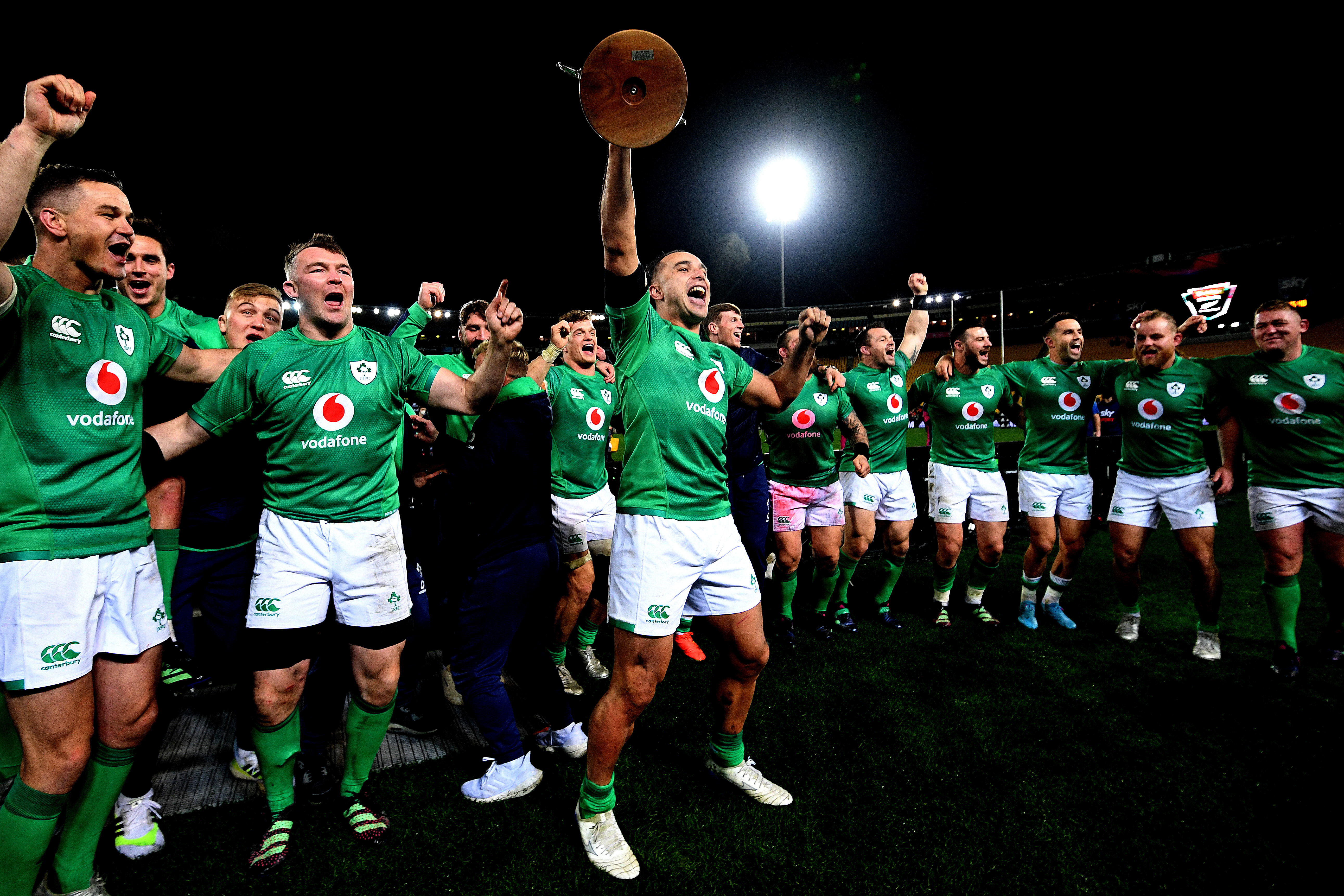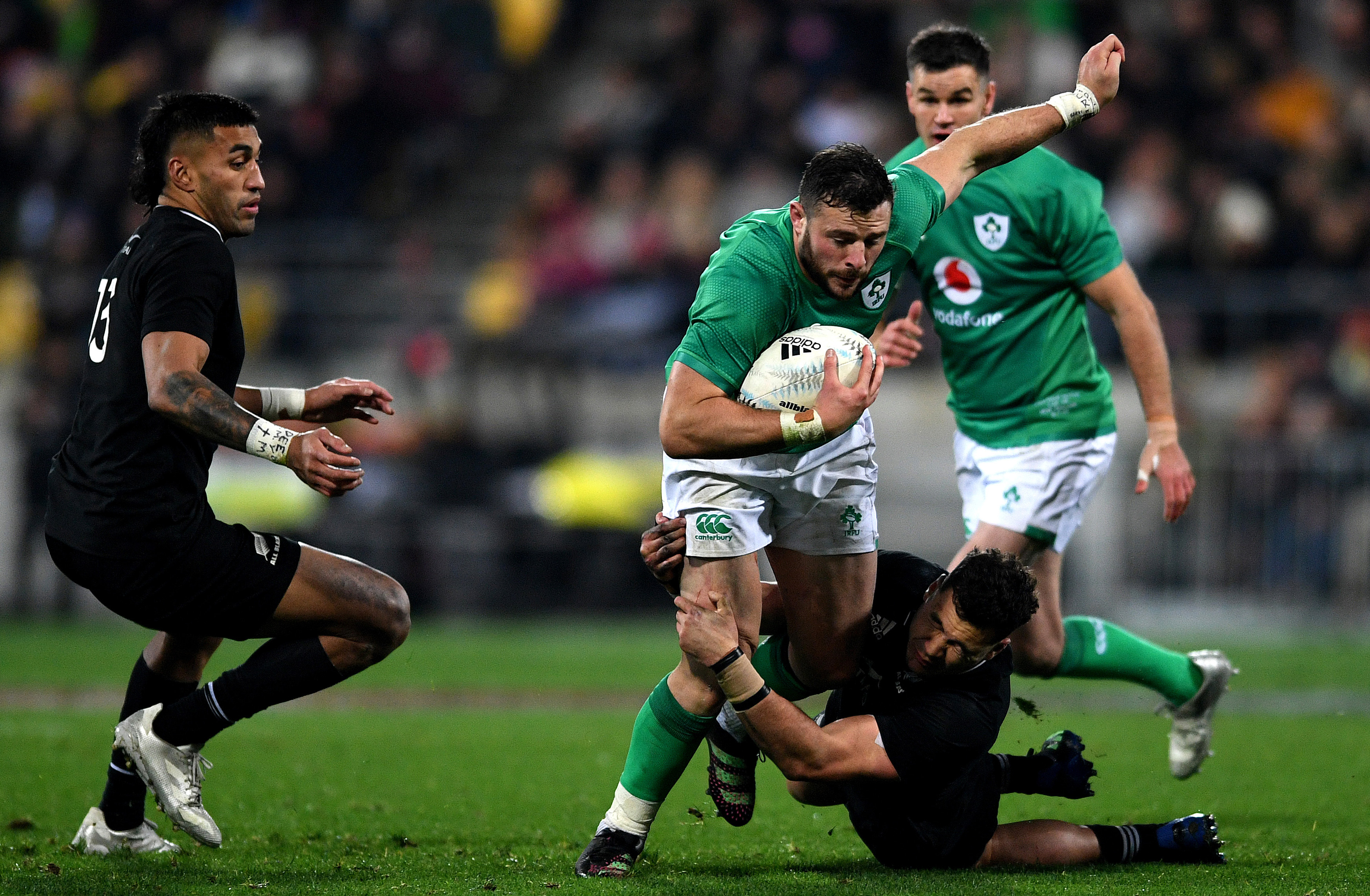THINKING INSIDE THE BOKS
Is the lack of exposure to South Africa’s physicality behind the All Blacks’ slump?

The All Blacks will arrive in South Africa under more pressure than at any time in the professional era, for two matches against the Springboks.
You have to go back to 1998 for the last time the All Blacks lost four Tests in a row. On that occasion the losing streak ended at five, which included two defeats against the Springboks.
The class of 2022 will arrive in South Africa on Saturday morning on the back of two losses – the second and third Tests against Ireland, which gave the tourists a 2-1 series win.
With two Tests against the Boks as part of the Rugby Championship in Nelspruit and Johannesburg to come, that sequence could move to four defeats in a row. Could, should, would.
There is no denying the All Blacks are in a slump, but a slump for a team that historically wins 77% of its Tests, and in the professional era (1996 to the present) wins 82% of the time, it’s a relative concept.
Less than a month ago the All Blacks beat Ireland 42-19 in the first Test of that series. While the score flattered the home team slightly, they showed their traditional ruthlessness from turnovers.
Ireland had issues going into the first Test with Covid disruptions, front-row injuries and losing influential flyhalf Jonny Sexton in the first half of the match. The All Blacks feasted on the chinks in the Irish armour that day.

James Lowe of Ireland celebrates with his team after beating the All Blacks at Sky Stadium in Wellington, New Zealand, on 16 July 2022. (Photo: Joe Allison / Getty Images)
But in the following two weeks, Ireland sorted out their issues at prop, Sexton stayed fit, and the tourists played a more percentage-based game, which exposed an alarmingly soft All Black underbelly.
Ireland dominated the gain line, won the breakdown battle and earned lineout supremacy as the All Blacks’ set piece inexplicably broke down. In short, the mighty All Blacks were bullied physically.
More harm than good
It’s not a popular opinion, but it seems that South Africa’s exit from Super Rugby has done more harm to New Zealand rugby than the opposite.
Many pundits warned that South Africa’s lack of exposure to New Zealand’s skilful ball players at provincial level would be to the Springboks’ detriment in the long run. However, it appears that New Zealand players’ lack of exposure to the brutal physicality of South African provincial teams is having a bigger negative impact on their game.
When South African sides have been successful at Super Rugby or Test level over New Zealand teams, it has always started and ended with physical dominance. Think of the Bulls circa 2007-10 or the Boks in 1998, 2004 or 2009 and even more recently in 2018-21.
After 25 years of Super Rugby, South African teams actually became less-adept ball players and more reliant on physicality as a major weapon to beat New Zealand teams.
There were several reasons for that, not least of which was the murderous travel schedule. It often meant South African teams approached games in New Zealand as damage-limitation exercises, rather than matches they believed they could win. The stats show this.
South Africa’s teams collectively won 52% (135 of 263 matches played) of their home games against New Zealand sides in Super Rugby between 1996 and 2020. Away from home that record dropped to an appalling 21% (53 wins out of 260 matches) win rate for South African teams in New Zealand.
The result of the contests was that New Zealand benefited. They had the best of both worlds because they learnt to deal with an eye-wateringly physical approach, while still being able to play their expansive game. The benefits filtered upwards and prepared players for all types of Test rugby.
Even though New Zealand’s record over South African teams in Super Rugby was dominant – they won 320 of 563 games (61%) – seldom were any of those victories achieved without first dampening a huge physical onslaught. Just for comparison, New Zealand teams won 62% of their matches against Aussie sides.
In terms of dominance, New Zealand’s collective Super Rugby record against South African and Australian teams was almost identical. But the styles they confronted, and therefore adapted to, were different.
New Zealand’s dominance in the current iteration of Super Rugby, without South African teams, doesn’t require the same level of physical dominance.

Ireland’s Robbie Henshaw is tackled during their Test against hosts New Zealand in Wellington on 16 July 2022. (Photo: Joe Allison / Getty Images)
And there are consequences. Are the type of New Zealand players who are willing to go into the trenches to quell South Africa’s raw, if unsubtle power game being overlooked because they don’t shine in this high-octane version of Super Rugby?
Players who are less flashy but have a harder edge are perhaps not as valued anymore. Would a young Jerome Kaino, Brad Thorn, Todd Blackadder or Keven Mealamu be as treasured in Super Rugby today?
The current iteration of Super Rugby features teams from New Zealand, Australia and the Pacific Islands. The marketing people behind it wanted “tries and excitement”, which works well for Australia in particular, if the goal is simply to “sell” the sport.
Australia’s market is lukewarm towards rugby union. It remains at best the fourth-largest sport in the country, so it has to create hype and excitement (translation: running rugby and tries) to attract fans.
Dangerous
It’s not like the All Blacks have collapsed into some sort of tier-two straggler. But at the very top end of the game, losing a few lineouts, or being smashed back over the advantage line could be the difference between winning and losing.
The All Blacks are also rebuilding and at a crossroads in terms of their coaching staff and some senior players.
Coach Ian Foster has presided over seven defeats and a draw in 24 matches in charge, which is still a decent 67% win rate for any other team. But not New Zealand.
Foster’s All Blacks have won the last two Rugby Championships in 2020 (without the Boks) and the full 2021 edition. They also retained the Bledisloe Cup over those two seasons.
But they have suffered three losses to Ireland (including a home series) and also slumped to a defeat against Argentina for the first time. France, Australia and South Africa have also beaten the All Blacks in this period.
Foster is certainly in the firing line because by the All Blacks’ own high standards he has underperformed. Assistant coaches John Plumtree (forwards) and Brad Mooar (attack) were axed after the Ireland series.
The Crusaders’ forward coach, Jason Ryan, has been brought in, almost certainly with a view to stopping the Boks’ rolling maul. Ryan’s Crusaders are the best team in Super Rugby when it comes to stopping mauls, although the caveat is that South African teams have not been part of that tournament for three years.
Ryan said the forward pack had been hurt by their performances against Ireland. “We talked about it in the forwards meeting [on Monday]. We didn’t hide anything. We were really honest. And we have to be. We have to get on with it,” he said.
“We’ve got to stop mauls, that’s for sure. There’s a bit of work that needs to go into that and our contact area. We’ve stripped a little bit out and concentrated on a few critical things.
“There’s no better country or team to test yourself as a forwards coach. It’s about where this team, and the forward pack, is. We’ve got to be fast learners. We’ve got immense respect for them, so we’re looking forward to getting over to South Africa. There’s nowhere we’d rather be,” he said.

Jordan Barrett of the All Blacks and Jamison Gibson Park of Ireland contest for the ball during the Test in Wellington on 16 July 2022. (Photo: Joe Allison / Getty Images)
The respected Joe Schmidt, the former Ireland head coach who started the project that saw Ireland blossom into a leading team, has been roped in to help Foster. That is bad news for the Boks.
Schmidt’s tactical nous is legendary. It might be coincidence that he oversaw the All Blacks’ preparations leading up to the first Test against Ireland when Foster was in Covid isolation. It’s the only Test the All Blacks have won this season.
Read more in Daily Maverick: “New Rugby Championship schedule will give Springboks a boost”
Coaching aside, the All Blacks are struggling with players in some positions. Captain Sam Cane was ingloriously hooked in the second half of the third Test against Ireland. It was an almost unprecedented scenario to witness an All Black captain substituted without being injured.
But it’s not like world-class loose forwards are falling off the New Zealand production line at the moment. Ethan Blackadder is injured and their remaining options limited.
And in the build-up to the Bok challenge, experienced lock Brodie Retallick and props Joe Moody and Ofa Tu’ungafasi have been ruled out of the tour.
Behind the scrum though, the All Blacks still have the firepower to unsettle any team. Beauden Barrett, Richie Mo’unga, Rieko Ioane, David Havili, Will Jordan, Sevu Reece and Jordan Barrett are all explosive.
But first and foremost, they will have to win the contact battle against the Boks, and on the evidence of this year, they will need to go up several notches in that area to compete.
This isn’t Super Rugby Pasifika anymore. DM

















 Become an Insider
Become an Insider
Interesting article. I do subscribe to the fact that NZ missed a step when they dumped the Boks out, but the Boks have m over on. I dont believe, however, that the AB’s are going to be easy to beat, even on our home soil and the Boks will have to be clinical on attack to beat these guys. The sideways meaning of our backline will be cruelly exposed by these guys. Cant wait for the tour to begin. Good luck Bokke